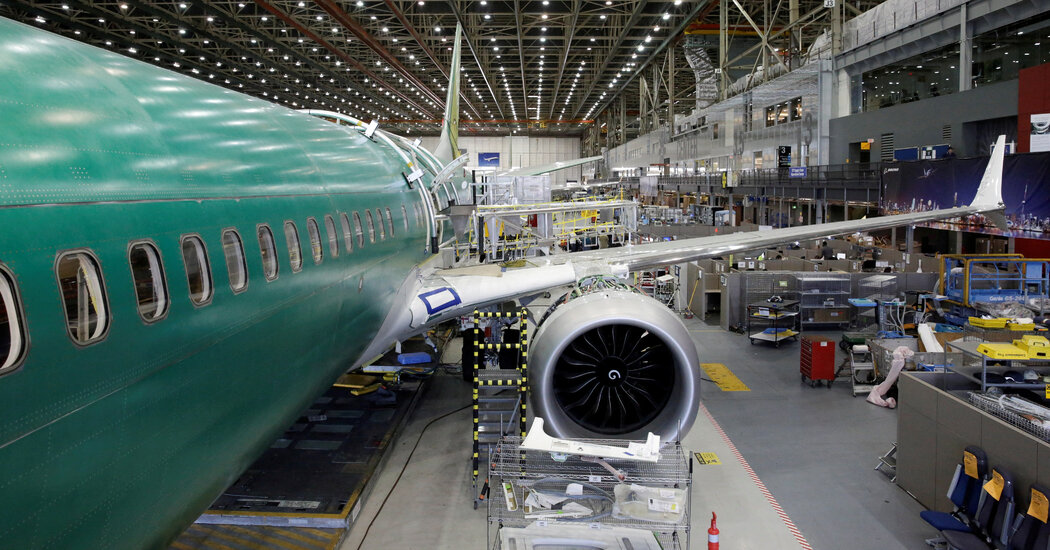Boeing hoped 2024 would be the year it would significantly increase production of its popular Max jets. But less than a month into the year, the company is struggling to reassure airline customers that it will still be able to deliver on its promises.
That’s because the Federal Aviation Administration on Wednesday said it would limit the plane maker’s output until it was confident in Boeing’s quality control practices. That announcement came about three weeks after a panel blew off a Boeing 737 Max 9 body shortly after takeoff, terrifying passengers on an Alaska Airlines flight and forcing the pilots to make an emergency landing at the Portland International Airport in Oregon. Almost immediately, the F.A.A. grounded some Max 9s.
Since then, details have emerged about the jet’s production at Boeing’s facility in Renton, Wash., that have intensified scrutiny of the company’s quality control. Boeing workers opened and then reinstalled the panel about a month before the plane was delivered to Alaska Airlines.
The directive is another setback for Boeing, which had been planning to increase production of its Max plane series to more than 500 this year, from about 400 last year. It also planned to add another assembly line at a factory in Everett, Wash., a major Boeing production hub north of Seattle.
As part of the F.A.A.’s announcement on Wednesday, it also approved inspection and maintenance procedures for the Max 9. Airlines can return the jets to service once they have followed those instructions. United Airlines said on Thursday it would resume flying some of those planes as early as Friday.
The move is another potential blow to airlines. Even though demand for flights came roaring back after pandemic lockdowns and travel restrictions eased, the airlines have not been able to take full advantage of that demand. The companies have not been able to buy enough planes or hire enough pilots, flight attendants and other workers they need to operate flights. A surge in the cost of jet fuel after Russia invaded Ukraine also hurt profits.
Many airline executives are now assessing how the F.A.A. order would affect plans for their fleets for the next decade — or longer.
When they were introduced, the narrow-body, fuel-efficient planes were supposed to help the manufacturer compete with Airbus, which has pulled way ahead of Boeing in sales. But the Max series has been plagued by mechanical and safety issues, including two crashes in 2018 and 2019 that…
Click Here to Read the Full Original Article at NYT > Travel…
